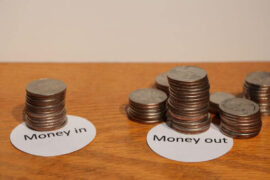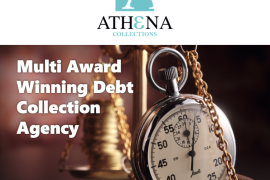Most people do not like talking about debt. It is usually the result of poor budgeting, or spending beyond your means, which may include going through a divorce, court cases, or even student loans.
This is a reality for most people that are living today. In 2015, every household in the UK was in debt by at least £10,000. Although this is a small number, it does not include mortgages.
You really can’t ignore your debt, but you also can’t deny that it exists. There are ways that you can approach any situation with that in a positive way.
Here are five tips that can help you:
Face Your Financial Situation
The first step to resolving this issue is to first determine every single debt that you have and write them down on a piece of paper. Once you have done that, you will want to place them in order, and that may include taxes or unpaid rent. As you go down the list, you will likely have overdrafts, credit cards, and other forms of debt listed.
Snowballing is something that you could try – which is basically clearing all of your debt that has the highest interest rate before moving on to the next one. If you prioritize, you can somehow manage all of them. However, it’s important to consider what your consequences will be if you do not pay your debts on time and also the interest rates that you are paying.
Create A Budget
Once you have made this list, you will have a much clearer picture of what your situation is. It’s important to use a budget planner, such as the one available from Money Advice Services, that can help you calculate how much money you will have to spend in order to get out of debt. This can provide you with exact monthly figures that you will have to pay to succeed in paying them off.
Research Balance Transfers
If you can, try to transfer some of your balances to other credit cards that have a lower interest rate. By doing this, you will have a much better monthly payment and can stop accruing debt so quickly.
If you get to a point where you can confidently pay off everything, switching your debt to a 0% credit card might be the best option. However, you need to look around for the best deal as there are actually differences between these options. It makes sense to move everything to a lower credit card rate. However, the interest is still going to be charged so you have to keep that in mind.
Get A Personal Loan
Another option, which is somewhat counterintuitive, is to take out another loan so you can pay your debt. If you look around, you should be able to find one with a low one of APR that could save you money every month. In 2016, a publication of This Is Money, determined that average credit card rates are well over 21%. If you do your research properly, you can find something that is at least half that amount. Overall, by consolidating everything, and having one single payment, you can structure your debt in a way that it can be less stressful.
Seek advice
If you are overwhelmed all the time, there is always help available. You can contact professional companies like National Debtline* or Citizens Advice* and find out what is a debt management plan. They have helped thousands of people already get control of their debt situation.
Although most people don’t like to talk about money, just not easy to talk about your debt problem. Managing your debt can be more simple, but you have to face the problem head-on, and when you do you will be surprised how fast your debt situation may resolve itself in the near future.





